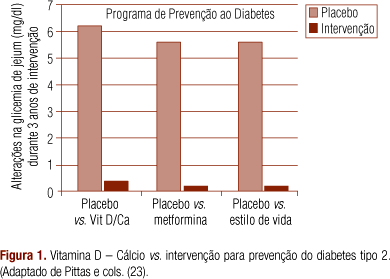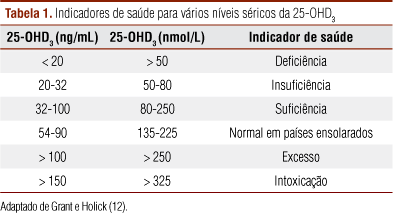Vitamin D insufficiency/deficiency has been worldwide reported in all age groups in recent years. It has been considered a Public Health matter since decreased levels of vitamin D has been related to several chronic diseases, as type 2 diabetes mellitus (T2DM), obesity and hypertension. Glucose intolerance and insulin secretion has been observed during vitamin D deficiency, both in animals and humans resulting in T2DM. The supposed mechanism underlying these findings is presence of vitamin D receptor in several tissues and cells, including pancreatic β-cells, adipocyte and muscle cells. In obese individuals, the impaired vitamin D endocrine system, characterized by high levels of PTH and 1,25(OH)2D3 could induce a negative feedback for the hepatic synthesis of 25(OH)D and also contribute to a higher intracellular calcium, which in turn secrete less insulin and deteriorate insulin sensitivy. In hypertension, vitamin D could act on renin-angiotensin system and also in vascular function. Administration of 1,25(OH)2D3 could decreases renin gene expression and inhibit vascular smooth muscle cell proliferation. However, prospective and intervention human studies that clearly demonstrates the benefits of vitamin D status adequacy in the prevention and treatment of endocrine metabolic diseases are lacking. Further research still necessary to assure the maximum benefit of vitamin D in such situations.
Vitamin D; diabetes mellitus; obesity; hypertension


